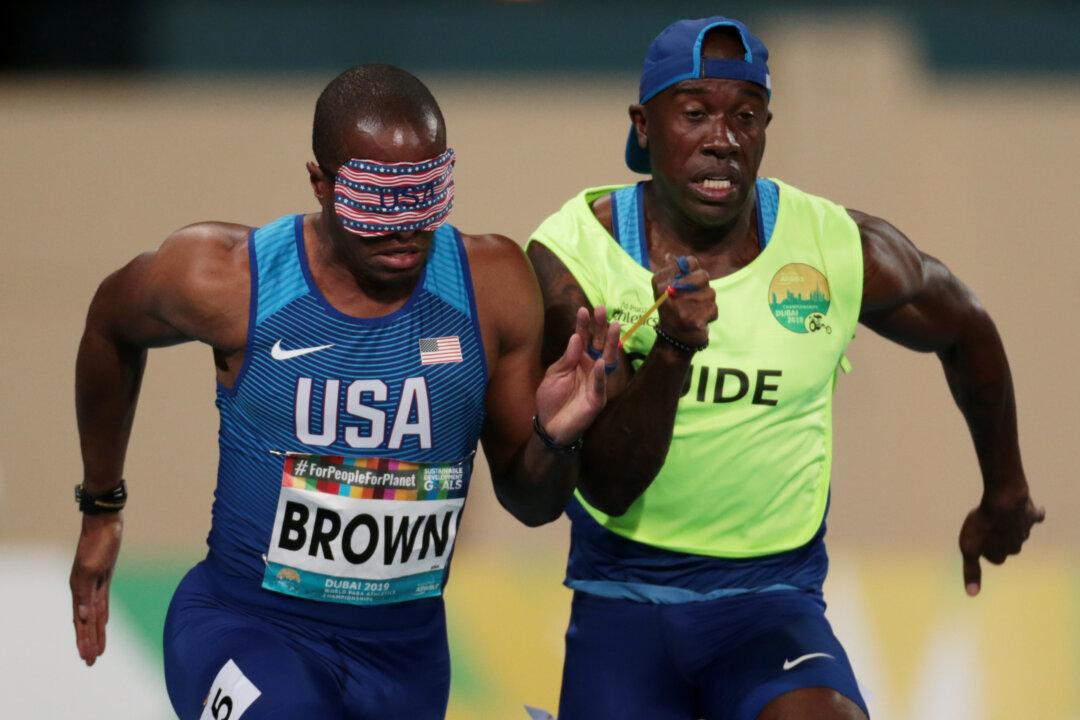David Brown, the world’s fastest totally blind sprinter, has been accompanied every step of the way by his guide Jerome Avery but the COVID-19 outbreak has forced them apart for the first time in six years of training and racing together.
Many runners can continue training more or less as usual in this time of social and physical distancing but it is not so easy for those without sight, who run in tandem with their guide, their adjoining hands tethered by a 12-inch band.






